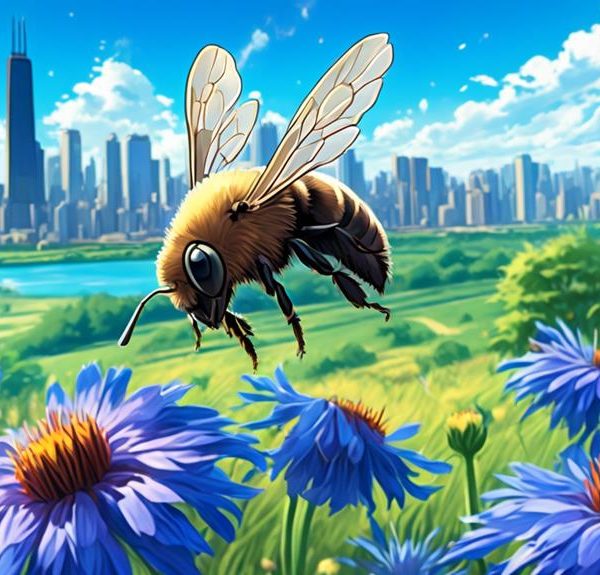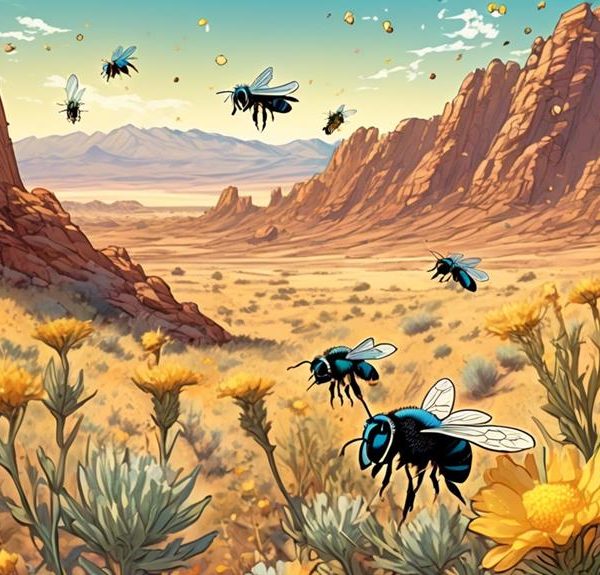Wondering about mason bees in Kansas? Discover their intriguing existence and impact on local ecosystem health and diversity.
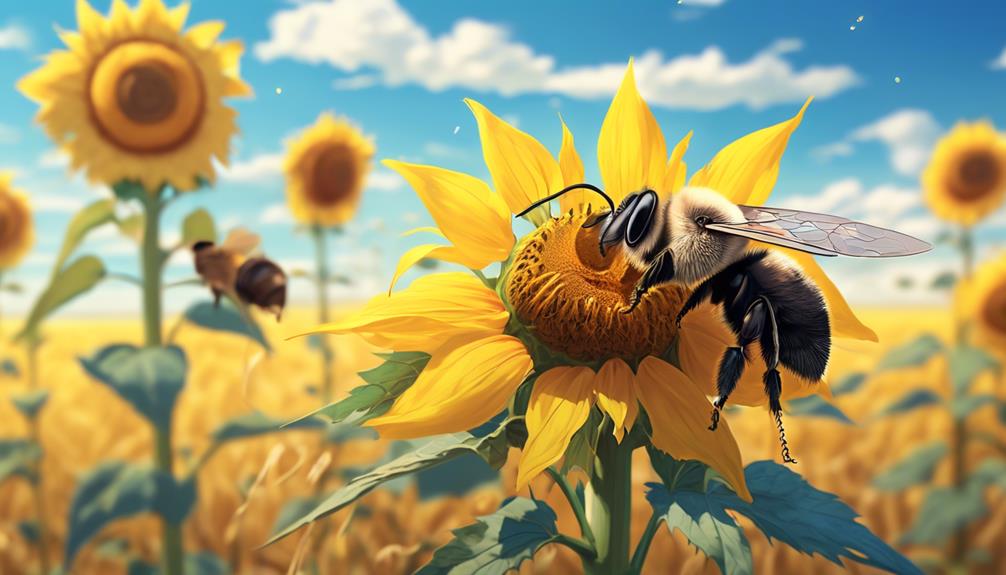
Are There Mason Bees in Kansas?
You've heard the buzz about honeybees, you've wondered about wasps, but have you ever pondered about the presence of mason bees in Kansas?
As a diligent observer of nature, you might be aware that bees play a pivotal role in our ecosystem, especially in pollination. However, the existence of mason bees in the Sunflower State could raise questions about the local flora and fauna's health and diversity.
If you're intrigued by the fascinating world of these industrious insects, let's embark on a journey to discover more about mason bees and their possible existence in Kansas.
Key Takeaways
- Mason Bees have a unique solitary life cycle and are exceptional pollinators.
- They prefer sunny areas with access to mud for nesting, and nearby flowering plants for food.
- Kansas has a healthy population of Mason Bees, especially in residential areas with gardens or parks.
- Mason Bees play a vital role in enhancing biodiversity, supporting other wildlife, and contributing to soil aeration.
Understanding Mason Bees
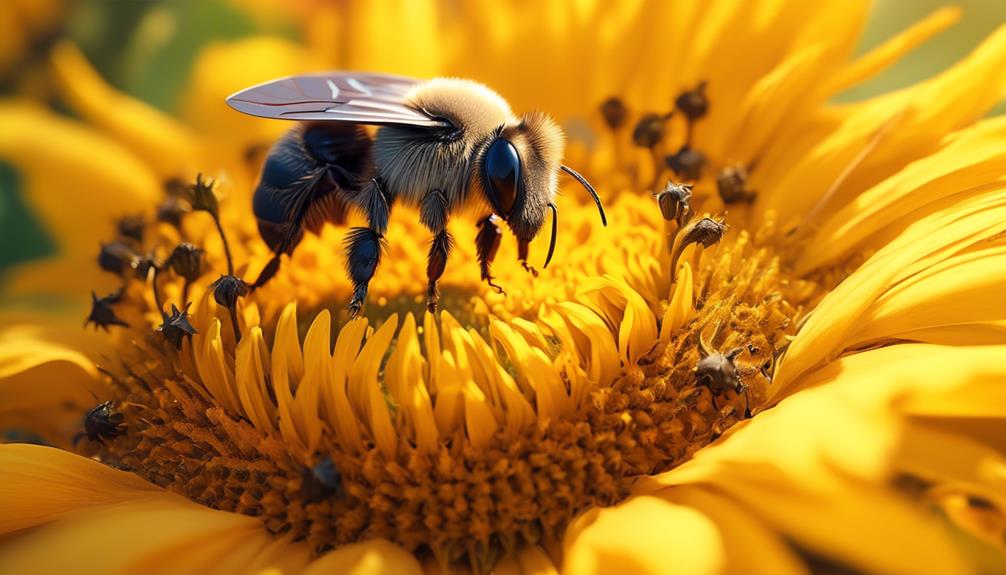
To truly appreciate Mason Bees, you must first understand their unique life cycle, which is characterized by solitary behavior, exceptional pollination abilities, and distinct nesting habits.
Unlike honeybees, Mason Bees work alone, each female independently seeking out the perfect nesting site, laying her eggs, and providing for her offspring. They're not involved in social structures or the defense of a communal hive, which makes them less aggressive towards humans.
Their pollination abilities are remarkable. You'll find that these bees are superior pollinators, capable of pollinating far more flowers per day than honeybees. They're nature's little gardeners, ensuring the reproduction of plants and the growth of your favorite fruits.
Now let's touch upon their nesting habits. Mason Bees are known for their unique approach to nesting. They often select pre-existing holes instead of creating new ones, filling them with a series of compartments where they lay their eggs. They're meticulous critters, carefully sealing each compartment with a mix of mud and saliva, hence their name.
In essence, understanding these bees can help you appreciate their significant ecological role and their potential value as pollinators in your own garden.
Mason Bees Habitat Preferences
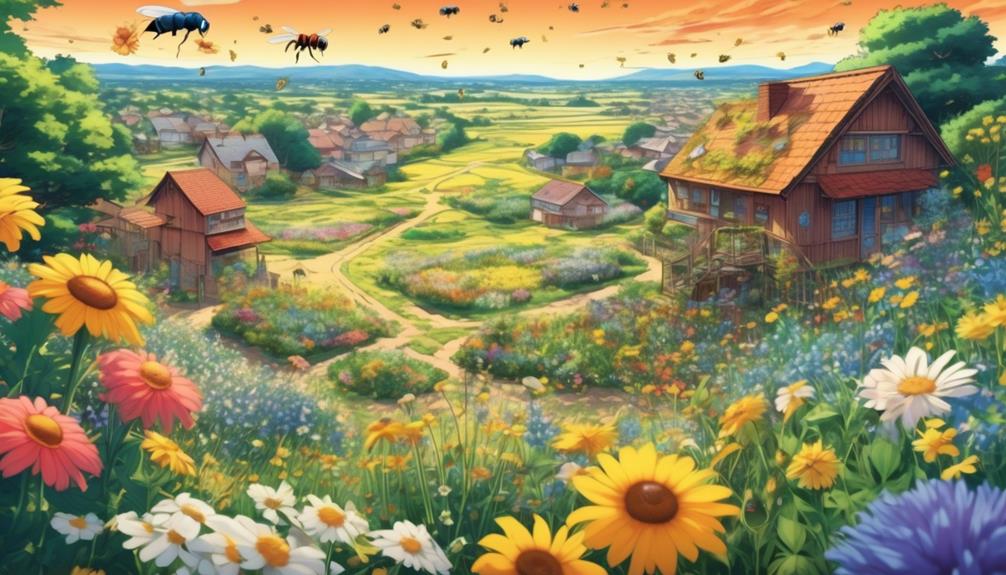
When it comes to setting up home, Mason Bees have specific preferences that influence their choice of habitat. Being solitary bees, they don't live in colonies like honeybees, rather, they nest in pre-existing cavities. You'll find them in hollow stems or holes in wood.
Here's a quick overview of their habitat preferences:
Habitat Type | Preference | Details |
|---|---|---|
Location | Sunny areas | They favour south-facing spots with morning sun. |
Nesting Material | Mud | They use mud to partition and seal their nests. |
Nesting Sites | Pre-existing cavities | They don't excavate their own nests, but use available spaces. |
Food Sources | Nearby flowering plants | They need food sources within a short flight range. |
Human Interaction | Minimal | They tend to avoid highly trafficked areas. |
These preferences make mason bees particularly suited to urban and suburban environments, where they can nest in man-made structures and benefit from garden plants. They're efficient pollinators, so understanding their habitat preferences is not just scientifically interesting, but also crucial for promoting their conservation and benefiting our ecosystems. So, if you're in Kansas, keep an eye out for these industrious bees!
Presence of Mason Bees in Kansas
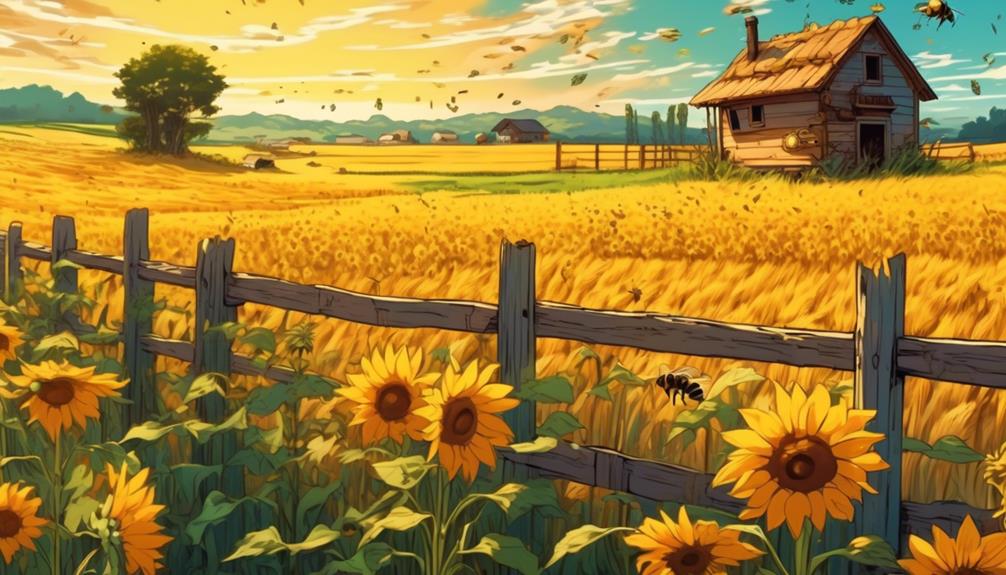
Given these habitat preferences, you might wonder how prevalent Mason Bees are in the Sunflower State. You'll be pleased to learn that Kansas harbors a healthy population of these industrious insects. With its diverse flora and climates, Kansas provides an ideal habitat for numerous bee species, including the Mason Bee.
However, their presence isn't evenly distributed. You're more likely to find Mason Bees in areas abundant with their preferred nesting materials like soft wood or hollow reeds, and near sources of mud, which they use to construct their nests. In Kansas, this often means you'll find them in residential areas with gardens or parks, where these resources are readily available.
In terms of their seasonal activity, Mason Bees are most active during spring. So, if you're on a quest to spot these creatures, that's the best time to be on the lookout. It's also when they're most beneficial to the environment, as their pollination activities are in full swing.
Impact on Kansas Ecosystem
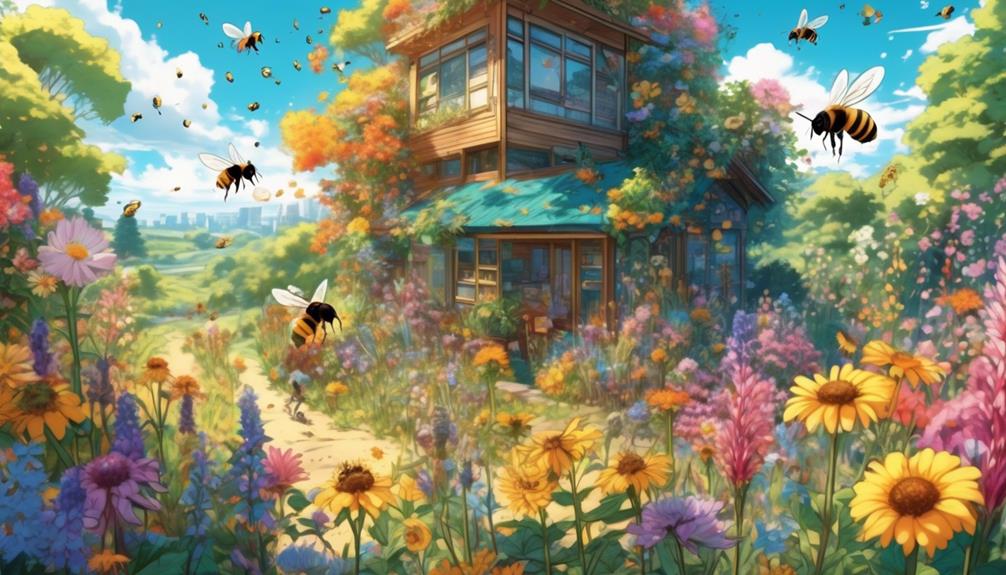
In the rich ecosystem of Kansas, Mason Bees play a crucial role in pollinating plants, thus significantly contributing to the biodiversity and health of the state's environment. You might be surprised to know that these tiny creatures can pollinate more efficiently than honeybees, due to their solitary behavior and tendency to visit a greater number of flowers.
To understand their impact better, let's look at the following table:
Role | Impact | Examples |
|---|---|---|
Pollination | Enhances biodiversity | Contributes to the growth of native plants |
Food source | Supports other wildlife | Birds, spiders, and other insects feed on Mason Bees |
Nesting | Ecosystem engineering | Their nesting behavior aids in soil aeration |
Bio-indicators | Reflects environmental health | Their presence indicates a healthy ecosystem |
Diversity | Ensures ecosystem resilience | A wider variety of pollinators equates to a stronger ecosystem |
Mason Bees' presence, therefore, not only aids in plant reproduction but also supports other wildlife, creates healthier soils, reflects environmental health, and strengthens the resilience of the ecosystem. So, as you can see, these industrious bees are truly an integral part of Kansas's ecosystem.
Protecting Kansas' Mason Bee Population
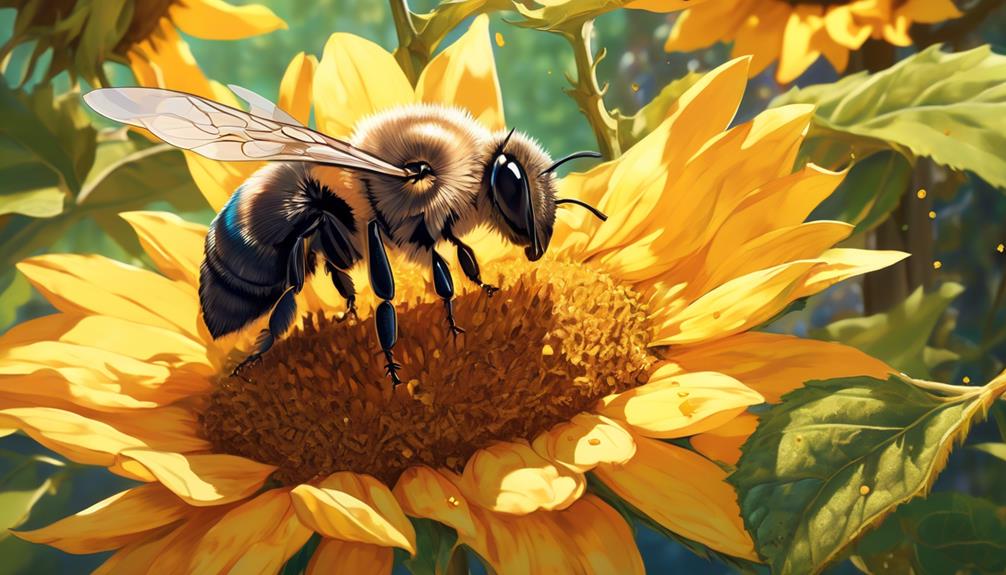
Understanding the significant role Mason Bees play in Kansas's ecosystem, it's essential that we take measures to protect this crucial population. As vital pollinators, Mason Bees contribute significantly to the diversity and health of Kansas's flora. Therefore, their decline could have severe ecological repercussions.
Firstly, you should aim to create suitable habitats for Mason Bees. They prefer nesting in pre-existing cavities like hollow plant stems or holes in wood. Providing bee houses with small tubes or drilling holes in untreated wood can attract them to your garden.
Secondly, avoid using pesticides, especially those containing neonicotinoids, which are harmful to bees. If pests are an issue, consider using organic or bee-friendly alternatives.
Thirdly, planting native plants can provide a reliable food source for these bees. They're particularly attracted to fruit trees and wildflowers.
Lastly, educating others about the importance of Mason Bees and how to protect them can help amplify your efforts. By taking these steps, you're not only safeguarding a species, but also preserving Kansas's biodiversity.
Conclusion
Yes, you'll find Mason Bees in Kansas. These industrious pollinators, preferring diverse habitats, have a significant role in Kansas' ecosystem.
Their decline could disrupt the balance, impacting food production and plant biodiversity. So it's vital that we understand, respect, and protect these small heroes of our environment.
After all, safeguarding the Mason Bee population in Kansas isn't just about preserving a species; it's about ensuring our ecosystem's health and productivity.

